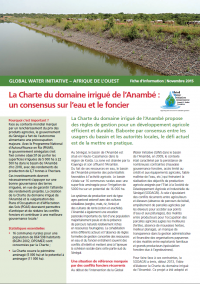Focal point
Location
Mission
Our mission is to build a fairer, more sustainable world, using evidence, action and influence in partnership with others.
Who we are
IIED is one of the world’s most influential international development and environment policy research organisations. Founded in 1971 by economist Barbara Ward, who forged the concept and cause of sustainable development, we work with partners on five continents. We build bridges between policy and practice, rich and poor communities, the government and private sector, and across diverse interest groups. We contribute to many international policy processes and frameworks, including the Intergovernmental Panel on Climate Change, the Millennium Ecosystem Assessment and the UN conventions on climate change and biological diversity.
What we do
IIED carries out research, advice and advocacy work. We carry out action research — generating robust evidence and know-how that is informed by a practical perspective acquired through hands-on research with grassroots partners — and we publish in journals and maintain high research standards. We advise government, business and development agencies, and we argue for changes in public policy. We focus on bottom-up solutions, stay open to flexible, adaptable solutions and are marked by a tradition of challenging conventional wisdom through original thinking.
Resources
Displaying 176 - 180 of 367Managing land and water resources by consensus: the Anambé irrigation scheme charter
The Anambé irrigation scheme charter sets out management principles for efficient and sustainable agricultural development. The charter is based on a consensus between river basin users and local authorities. Now the challenge is to put this into practice.
Asserting community land rights using RSPO complaint procedures in Indonesia and Liberia
The complaints procedure of the Roundtable on Sustainable Palm Oil (RSPO) is one of the options available to communities threatened by the negative impacts of the palm oil industry. Drawing on direct experiences of supporting communities to use it in Indonesia and Liberia, the report summarises how communities can get the most out of this procedure. Realistic outcomes include a temporary freeze on plantation development while longer term solutions are negotiated. Advises that several advocacy strategies be pursued simultaneously to maximise chances of success.
Asserting community land rights using RSPO complaint procedures in Indonesia and Liberia
The complaints procedure of the Roundtable on Sustainable Palm Oil (RSPO) is one of the options available to communities threatened by the negative impacts of the palm oil industry. Drawing on direct experiences of supporting communities to use it in Indonesia and Liberia, the report summarises how communities can get the most out of this procedure. Realistic outcomes include a temporary freeze on plantation development while longer term solutions are negotiated. Advises that several advocacy strategies be pursued simultaneously to maximise chances of success.
Asserting community land rights using RSPO complaint procedures in Indonesia and Liberia
The complaints procedure of the Roundtable on Sustainable Palm Oil (RSPO) is one of the options available to communities threatened by the negative impacts of the palm oil industry. Drawing on direct experiences of supporting communities to use it in Indonesia and Liberia, the report summarises how communities can get the most out of this procedure. Realistic outcomes include a temporary freeze on plantation development while longer term solutions are negotiated. Advises that several advocacy strategies be pursued simultaneously to maximise chances of success.
Land tenure conditions and the viability of irrigated rice farming
Analysis of land allocation strategies in irrigated agriculture schemes in West Africa yields lessons which can guide the design and implementation of current and forthcoming projects. Allocation of insufficient land makes the main purposes of large dam projects – to combat poverty and to increase national cereal production – more difficult to achieve. Research by the Global Water Initiative (GWI) at three dam project sites in West Africa shows that the area of land allocated per family is usually about 1 hectare (ha).






